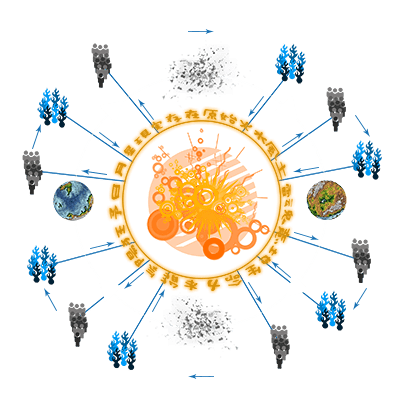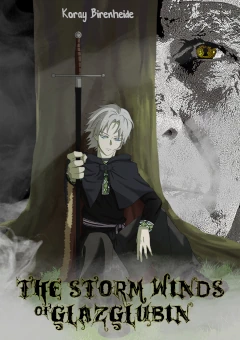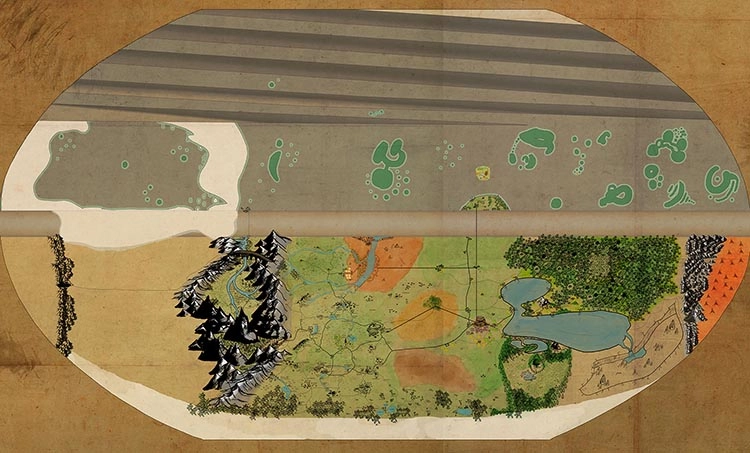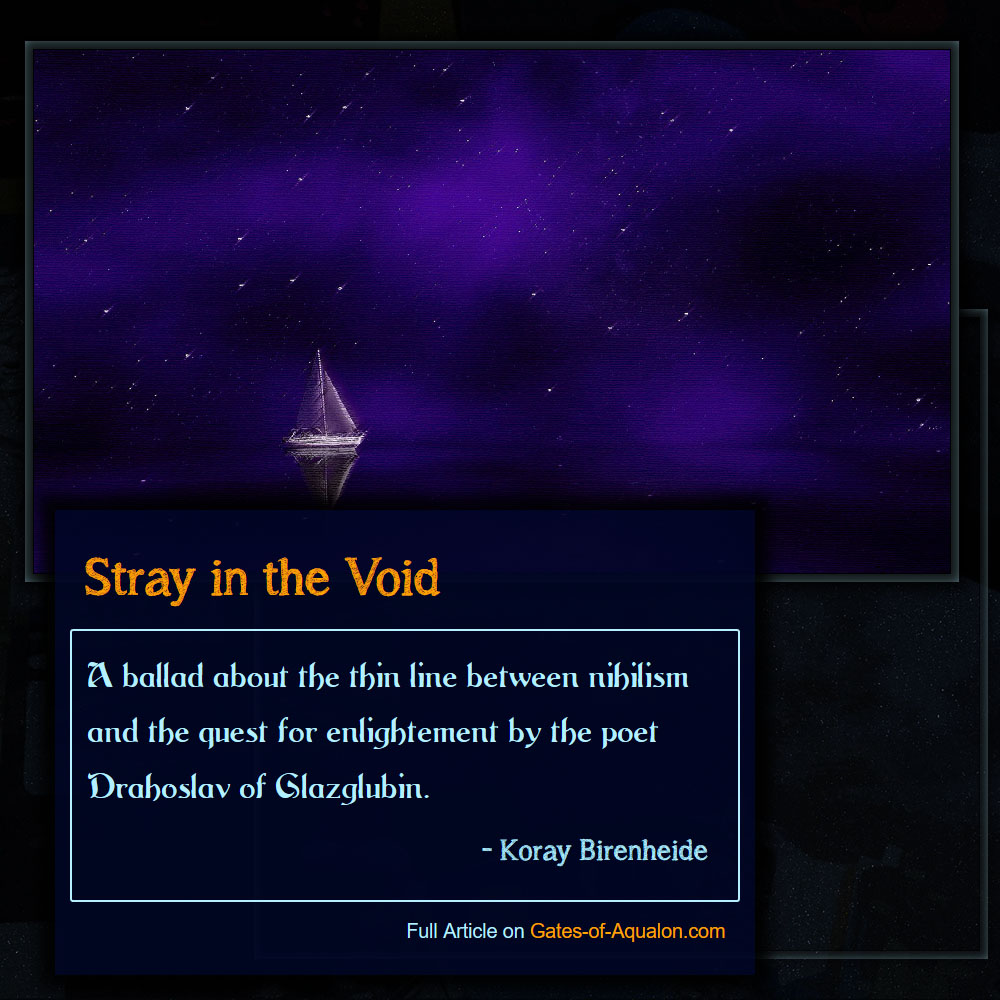Sometimes known as the lost tongue of the Albenmannen, "Albian", though true Albian differs from modern High Saxian in several aspects.
Parts of Speech
Words in the High Saxian Language come in the following types: Nouns, verbs, amplifiers (a combination of adjectives and adverbs), tonal prefixes, modulators (grammatical suffixes), pronouns,and conjunctions.
Nouns
Nouns do not have a gender or cases in High Saxian but do have both definite and indefinite singular and plural forms.
|
Indefinite Singular |
Definite Singular |
Indefinite Plural |
Definite Plural |
| High Saxian |
Saxa |
Saxia |
Saxer |
Saxär |
| Translation |
Mountain |
The Mountain / High Saxia |
Mountains |
The Mountains |
In this form of declining a noun, the ending of the noun is handled as follows:
If the noun ends on a vowel, the vowel is replaced by the ending, otherwise the ending is appended.
Ísen (iron) becomes Ísenia (the iron) in the definite singular.
Amplifiers
Amplifiers in High Saxian are surrounded on both sides by the word they amplify or "describe". This means "the green house" in High Saxian would be phrased as "the house green house".
In classic Albian, this "sandwiching" could have any number of layers, whereas in modern High Saxian, the amplified is only ever placed at the beginning and end and multiple amplifiers are chained using the grammatical suffix "-ta". The exception to this is lyrical High Saxian. In poetry, the classical Albian form is still in use, and sometimes people utilize the technique in oratory.
Example
Saxer => Mountains
Saxer hár Saxer => High mountains
Saxer hárta kaldrta Saxer => High and cold mountains
Saxer hár Saxer kaldr Saxer => Cold, high mountains (Albian or lyrical High Saxian)
Modulators
Attachment Indicator -ze
a) Nouns and b) verbs paired with the suffix -ze are assigned to the listener in a way comparable to the use of "your" and "you". Though rather than possessive, the suffix, to be more precise, assigns an action or thing/location/topic to the opposing party, meaning a more accurate translation of "noun"-ze is usually "with you".
Examples:
a) Y wolå
Rakallaze.
=> I see
your heart.
b) Mel'
kenze vætr.
=> for worse,
you know nothing.
Sentence Examples with Explanation
The saying "Rakata Rakta ri rul'yi" is well known among the Nordmen, but only it's rather loose translation is known to those who do not speak the tongue of the Angels: "Though dimmer than the stars, our blood is still red and hot, and it smells of metal," alluding to the Old World faith in the Soul Forge, a proto-form of the Great Clockwork.
The literal translation goes more along the lines of "Smelt down your celestial and physical form and rekindle your blood!" - this refers also to the
Men of Metal Myth, commanding the listener, if taken literally, to seek reincarnation. In its current form, the saying, however has long ago taken on a new meaning, instead reminding the listener of their awesome celestial origin, for by the principles of the Men of Metal Myth, all souls are smelted in the celestial kilns of the Soul Forge, visible to us as bright star light, and poured into our bodies when we are in the womb, cooling down and becoming our living blood.
On a grammatical level, the sentence has the following structure:
The connector modulator "ta", creates a semantic link between the word it is attached to and the following word, if that word carries the same modulator, forming a unit of "Rak" and "Raka".
The translation of "Rak" and "Raka" is somewhat difficult to achieve. While "Rak" is often translated as "the flesh" or "the mortal form," from its offshoots and connotations, it can be determined that its most literal translations goes along the line of "heart and brain".
Derived from "Rak" are the predominantly literal words for these organs, "Rakvul", "the brain", and "Rakshäal", "the heart".
"Raka" on the other hand, refers to the metaphysical counterparts of this organs, being best translated as "heart and soul". By extension, "Rakalla" is also translated as "the heart," but exclusively refers to metaphorical applications of the word. "The soul" would be "Rakënan".
Thus, translators generally tend to translate the combination of "Rakata Rakta" as "The celestial and the physical form".
"Ri" is the imperative form of "rishte", meaning "to smelt", "to smelt down", or "to reduce with fire".
Etymologically, it is relevant to note that the nominalization of "ri" is "Rinne", which technically means "the smelting" but is also strongly connoted as also meaning "reincarnation" or "rebirth", and exists in the same form in the Yamato tongue, also meaning "the cycle of rebirth".
The construction "rul'yi" is comprised of the words "rushte", "to kindle", "to rekindle", or "to light a fire", and the word "yi", which means "blood".
Verbs come before nouns but after enumerations in High Saxian, a grammatical fact often utilized in poetry.
While "Rushte yi" would mean something along the line of "to rekindle blood", the imperative form "rul'yi" means something along the line of "rekindle the blood!"
Note that an "l" is appended to the base form of "ru" due to it being followed by "y", which is considered to be a vowel in High Saxian. The doubling of vowels in verb-noun constructs is generally avoided in High Saxian grammar.












